Elvis & Kresse: Building a fully regenerative luxury goods business.
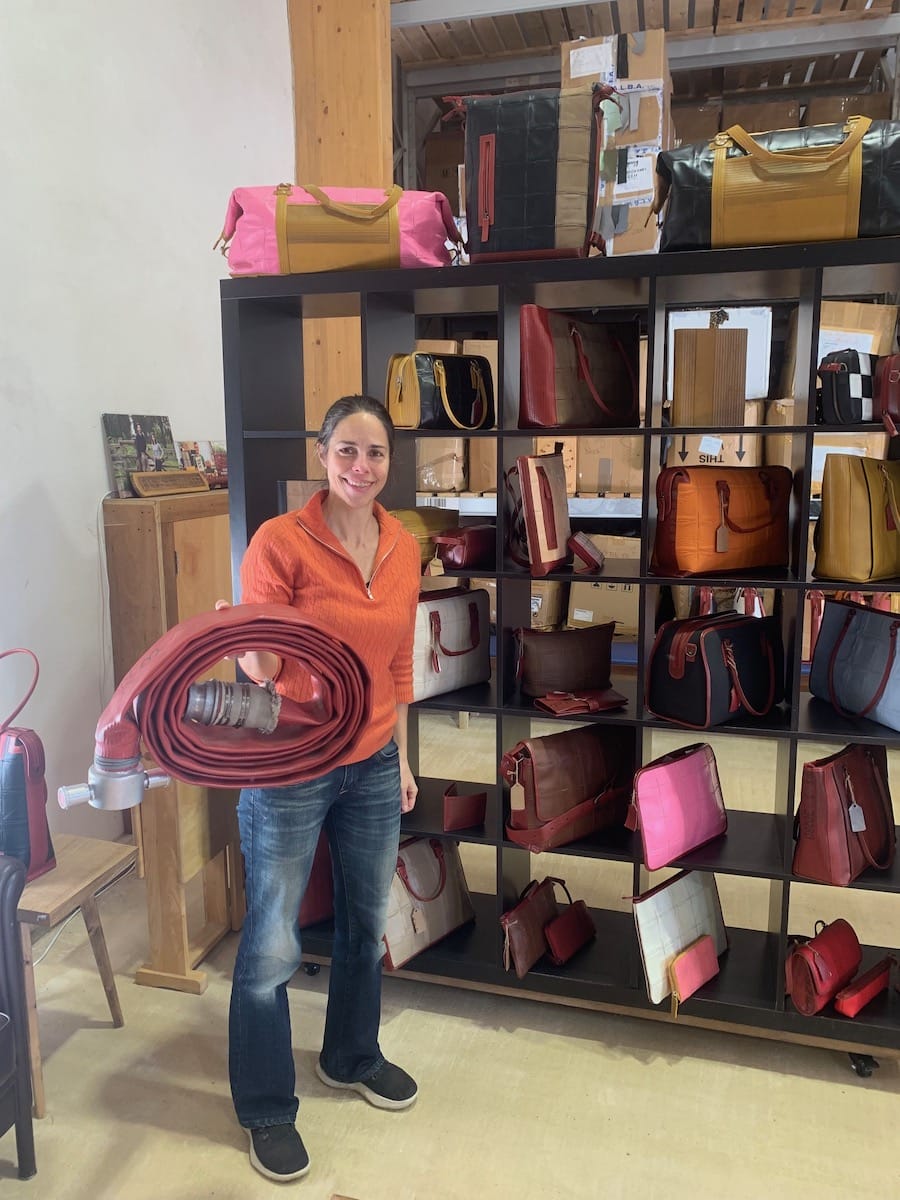
Pioneering luxury goods company Elvis & Kresse continues to increase the amount of waste materials it uses to make its unique belts and bags while also developing its farming offshoot that will enable the company over time to completely offset its carbon footprint.
The company was created to produce luxury goods from decommissioned fire hoses to be sold online via its own website and half the profits given to charity. The operation has continued to grow organically and has expanded out to use a variety of other waste materials including faulty parachute silk, off-cuts of leather, as well as tea and coffee sacks that are skilfully transformed by craftspeople at its workshop and farm site in Kent into desirable products.
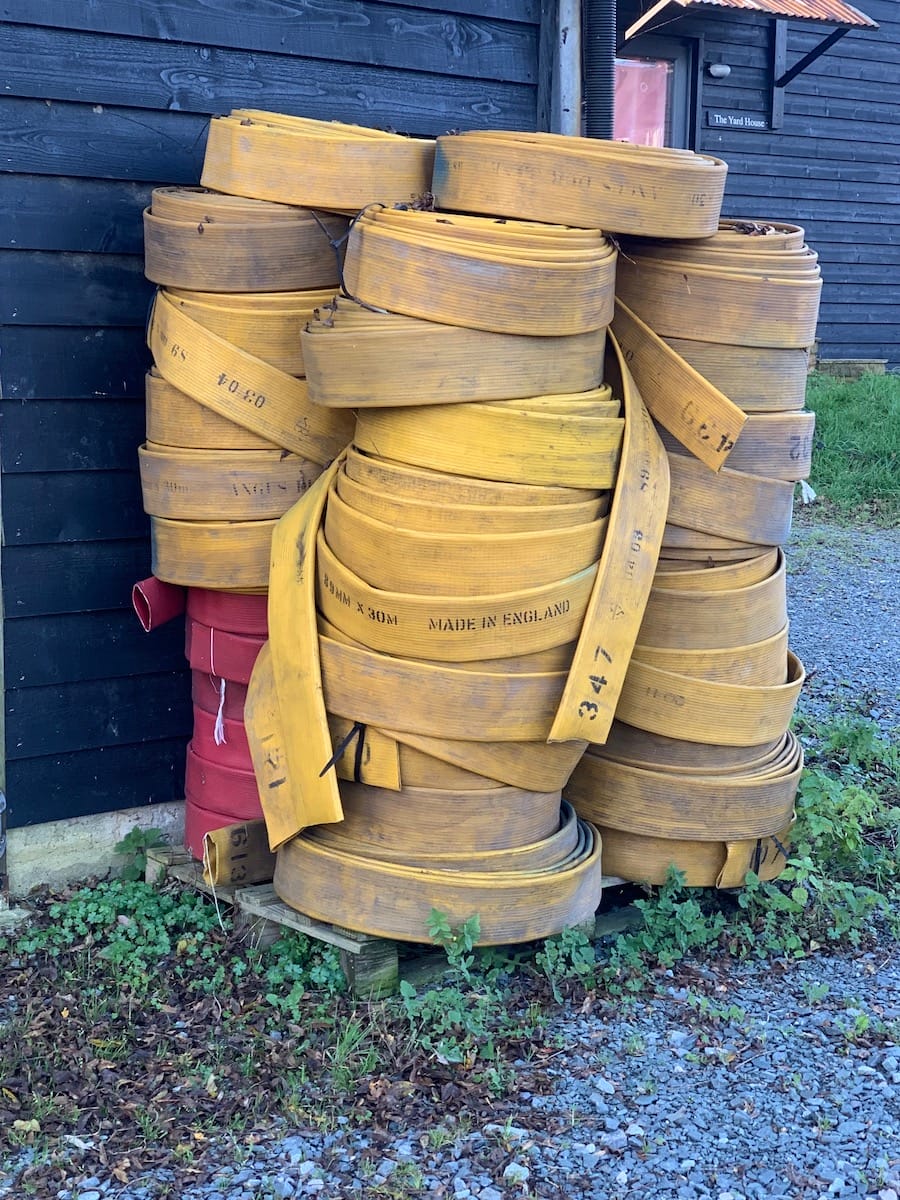
While this has proved successful the underlying ethical and sustainable philosophy of the company’s founders led them to explore developing the luxury goods company into a carbon balanced enterprise with zero impact on the environment.
Kresse Wesling, co-founder of Elvis & Kresse, says the business moved to its current location after it was decided to become a truly regenerative business: “We couldn’t escape the idea of restoring a degraded landscape into a biodiversity hotspot – and started researching regenerative agriculture and looking for farms. New Barns Farm was perfect.”
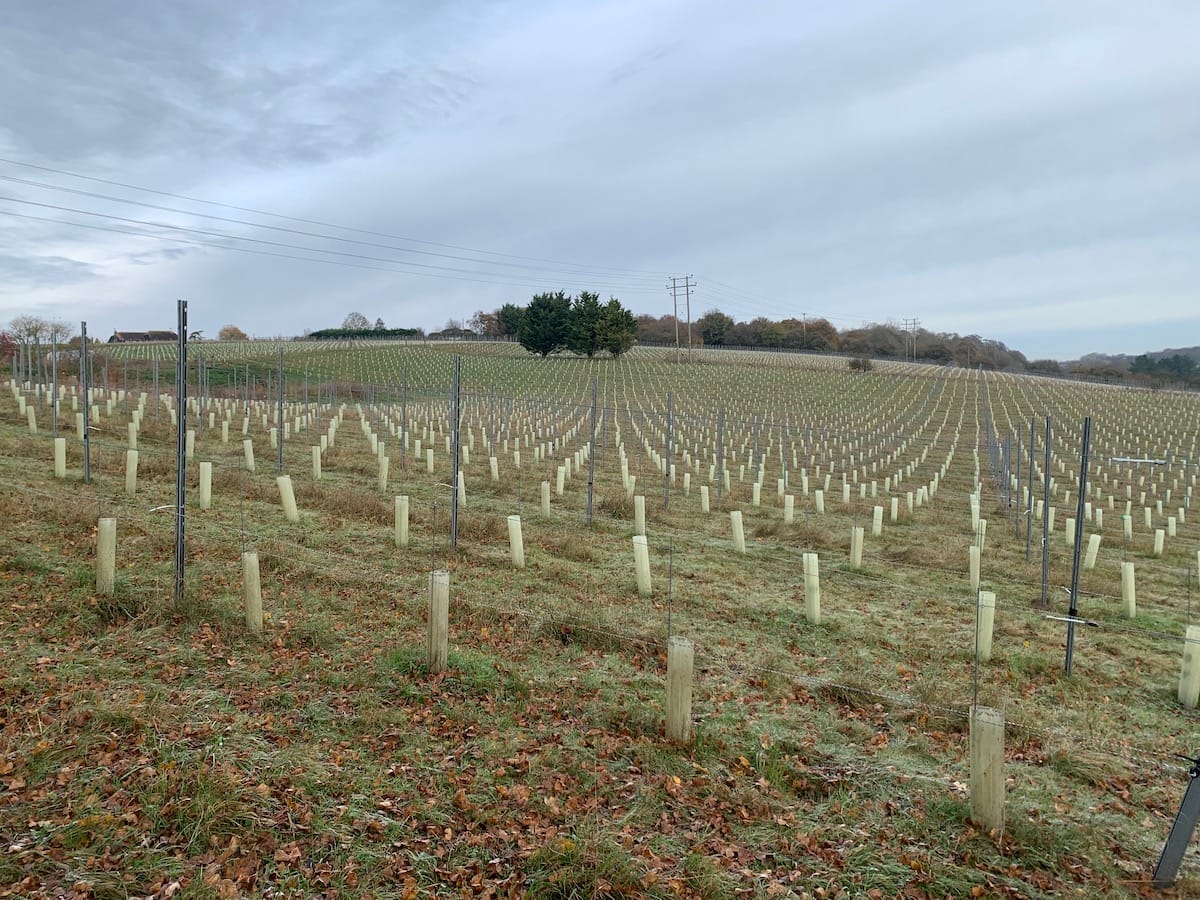
Taking a tour around the New Barns site highlights how much work has been undertaken on what Wesling says was probably the “worst farm in Kent, which was latterly a peat-cutting business”. On the site has been constructed a straw bale workshop, a wetland based sewage treatment facility, and on the majority of the 17 acres has been planted a fully regenerative vineyard. The decision to plant grapes was made only after it was discovered the soil is incredibly chalky and perfectly suited to viniculture.
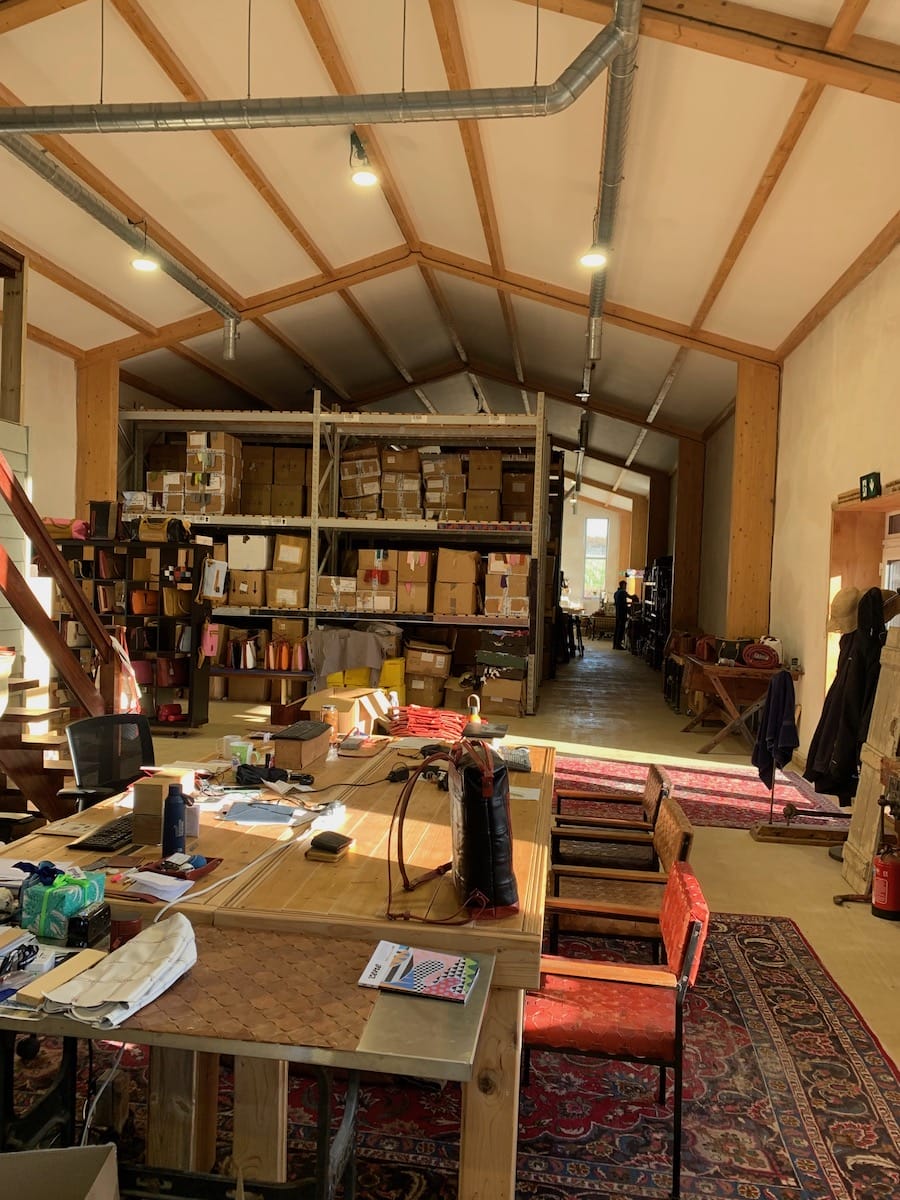
At the moment the luxury goods business funds the development of the farm but when the grapes can be harvested for wine production then the farm should be self-sufficient and the two aspects of the business will run in symbiosis with a carbon balance.
Within the New Barns workshop is the team of craftspeople who are predominantly leather workers led by a Romanian who relocated to the UK and plays a part in training up apprentices, which takes around 18 months. They create a range of 60/70 products split 50:50 between those made from the decommissioned fire hose and those from the leather off-cuts.
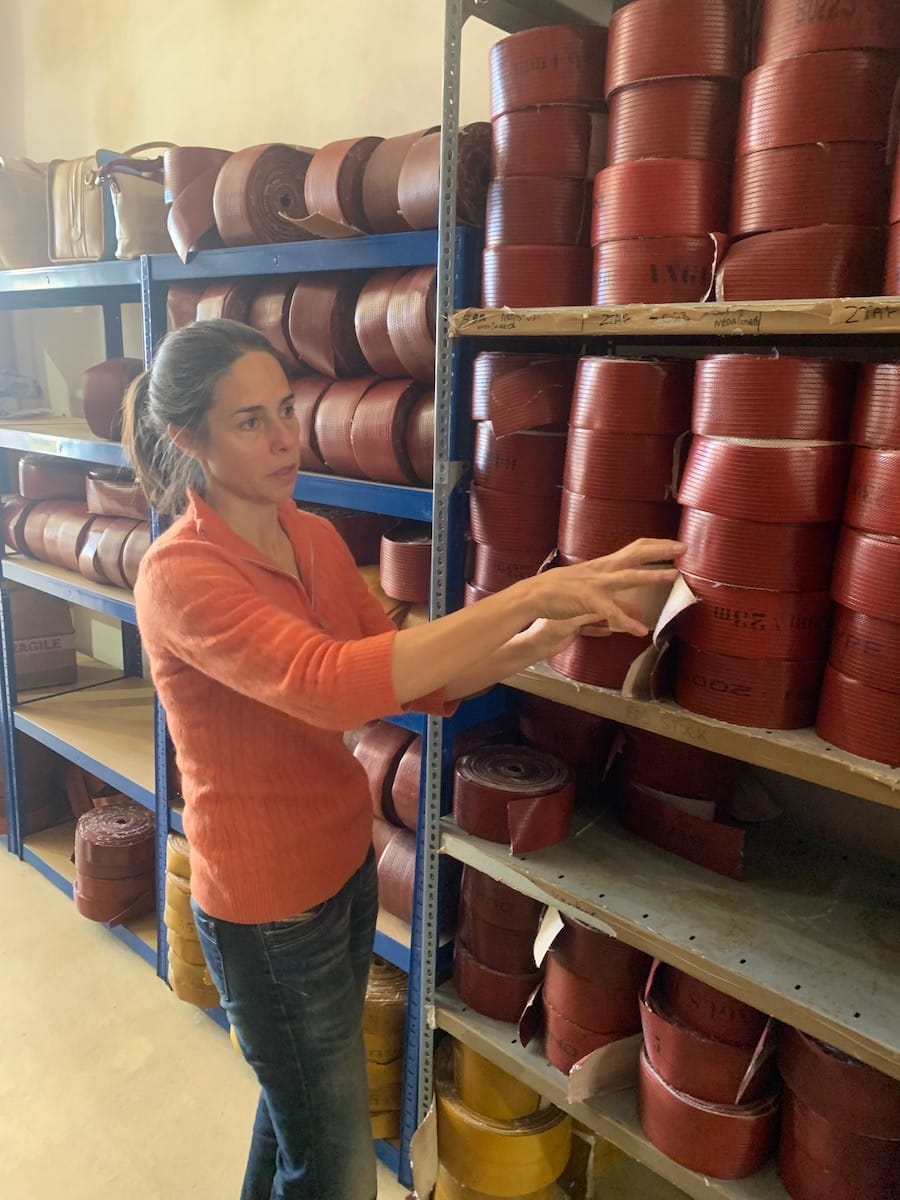
The leather is sourced from Burberry and interestingly includes some bright, garish colours, which Wesling says come from the tiny percentage of colourful bags Burberry uses to provide splashes of colour in its stores. Very few of them are sold as black leather is used for the vast majority of the archetypal Burberry bags.
As much as 85% of Elvis & Kresse sales are derived from its own website, with the remaining 15% coming from a mix of wholesale, of which Wesling says “we should do more”, with the company’s products available in a number of select retail stores. In addition, there is a small percentage sold through hotels and also as corporate gifts.
An interesting area of growth for the business is the use of the workshop as an experiential retail space. This largely involves the experience days the company sells that include lunch and an opportunity to create a bespoke, customised Elvis & Kresse product. This involves embellishing a core product from the company’s range. This activity now accounts for 5% of sales and is likely to grow.
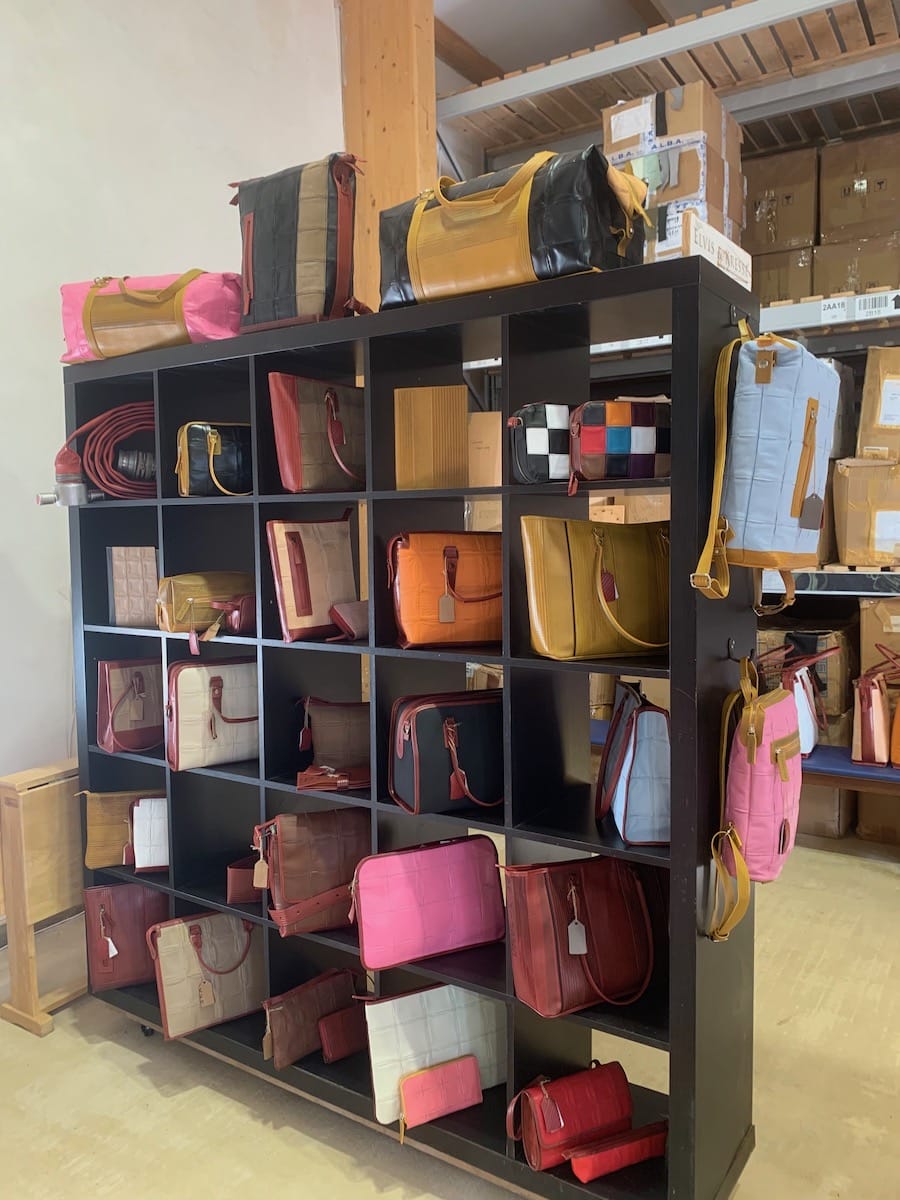
“It’s massive for the brand because when people visit the workshop they become brand ambassadors. They get to see what we are all about. Lots of companies simply says their products are green,” says Wesling.
In keeping with its sustainable model the company also undertakes repairs of its products. For minor repairs these are done at no, or very limited, cost. Even for the most intensive of repairs from severely damaged products the maximum charged is £50 and this is purely for the time of the craftsperson involved. These repairs can often be loss-leading but Wesling says it has to be affordable otherwise the company would be deterring people from having their products repaired.
Although Elvis & Kresse is very much focused on its core products of luxury accessories made from fire hoses and leather Wesling says there are plans afoot that will see a broadening out of the offer: “There is R&D in progress. We’re tinkering and experimenting and will have some new things to show in the future.”
